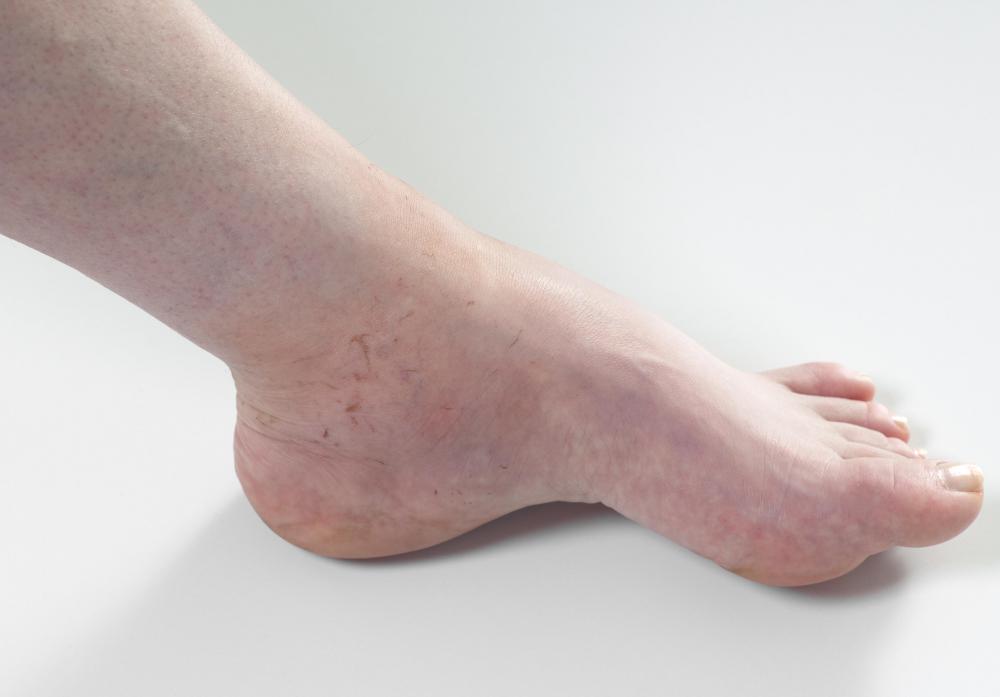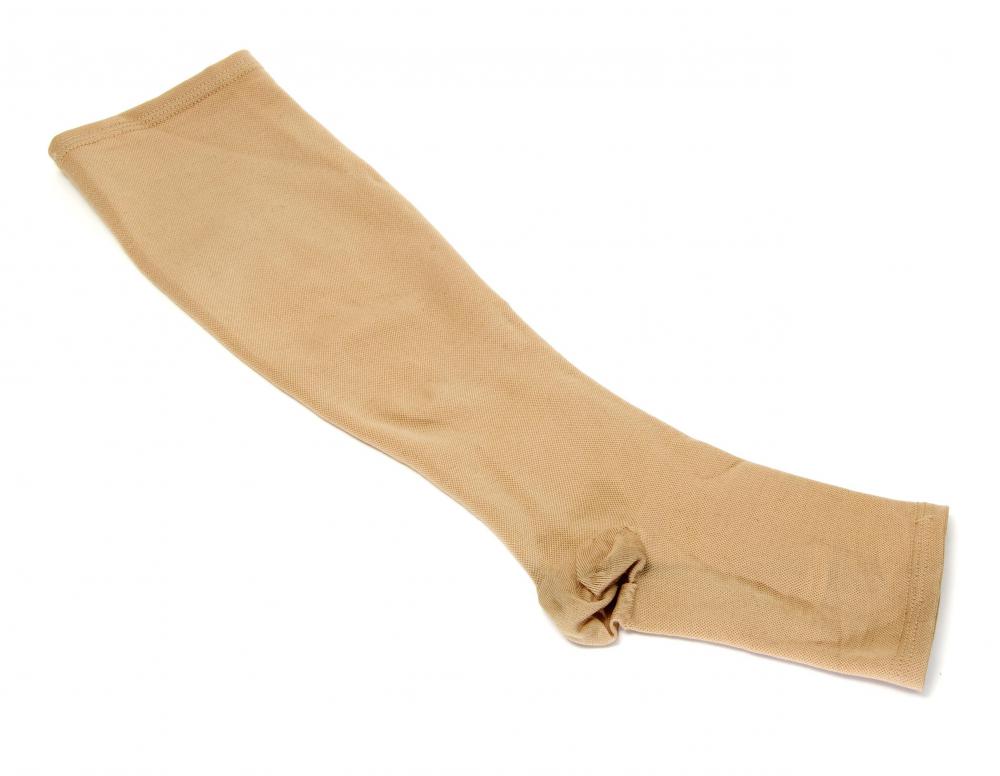At TheHealthBoard, we're committed to delivering accurate, trustworthy information. Our expert-authored content is rigorously fact-checked and sourced from credible authorities. Discover how we uphold the highest standards in providing you with reliable knowledge.
What is the Connection Between Edema and Surgery?
Edema and surgery can be seen together both because many conditions leading to edema require surgical treatment, and some kinds of surgery can increase edema risks. Patients with edema experience swelling in the extremities caused by collections of interstitial fluid. Sometimes, the swelling is only found in a specific area, like a foot or arm, and in other patients, it may be general, covering the whole body. Treatments are available to manage this condition and to reduce risks for edema and surgery.
Cardiovascular conditions can cause edema and may require surgical treatment. People with heart, lung, and blood vessel disorders may find that edema and surgery appear to go hand in hand because the surgery stresses their already strained bodies, leading to some localized swelling after surgery. Conditions like diabetes can also predispose people to edema, and if these patients need surgery, their edema risks can be even higher. Swelling can also occur in people experiencing severe physical trauma, which may necessitate surgical treatment, and patients may attribute the swelling to the surgery rather than the underlying tissue damage.

Surgery can also contribute to the development of edema, in a number of ways. During surgery, patients receive blood and fluids to keep blood pressure consistent and within a safe range. This can sometimes create an overloading situation, where the body receives too much fluid to clear on its own, and the patient begins to develop edema. This can be compounded by the fact that patients usually need to rest after surgery and can have trouble moving around to improve their circulation, making edema in the lower limbs more likely.

Additionally, surgery may involve the lymph nodes. In cancer patients, a surgeon may remove lymph nodes to reduce the risk of metastasis, and the body will not be able to circulate fluid as effectively, causing edema. Surgery can also injure lymph nodes and vessels, and the patient may notice localized edema until the body recovers. When edema and surgery involve lymph node damage, it may be necessary to wear compression garments to force the fluid out of the extremities so the patient can eliminate it.

Patients concerned about edema and surgery can discuss this with their physicians. Usually, the risks of edema are outweighed by what will happen if the patient does not receive surgical treatment. Taking steps ahead of time to control fluid and salt intake can help minimize swelling, and wearing compression garments may prevent severe edema.
AS FEATURED ON:
AS FEATURED ON:
















Discussion Comments
@rundocuri- Patients should also follow their doctors' advice about movement and exercise during the time of healing to reduce edema after surgery. Though it is not a good idea to over-do it, mild exercise such as short walks and stretches will help keep patients' systems moving and flushing out extra fluid buildup.
A patient who is concerned about edema following surgery should talk to her doctor about consulting with a dietician before the procedure. Starting to eat a low-salt, high nutrient diet before surgery and continuing it post-op will help decrease the likelihood of edema developing, or at least decrease its severity.
Post your comments